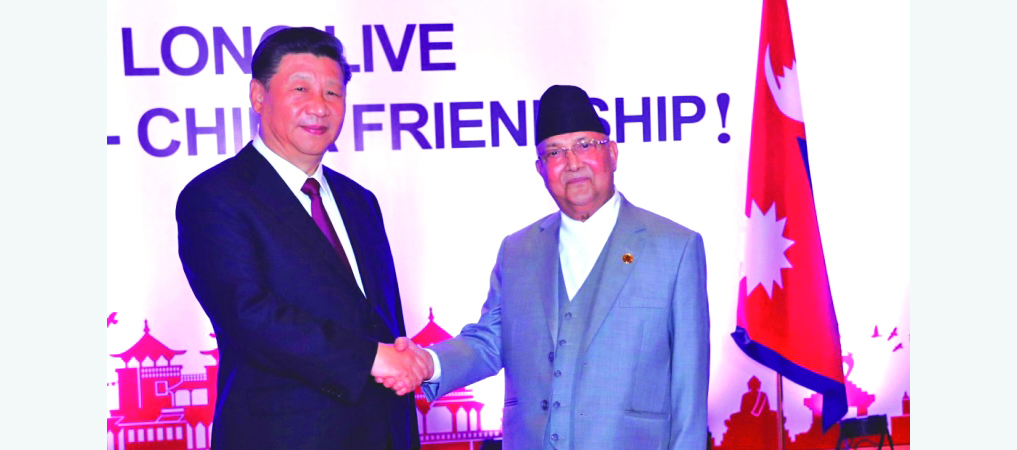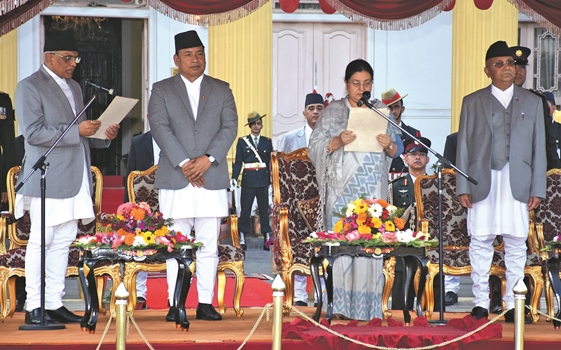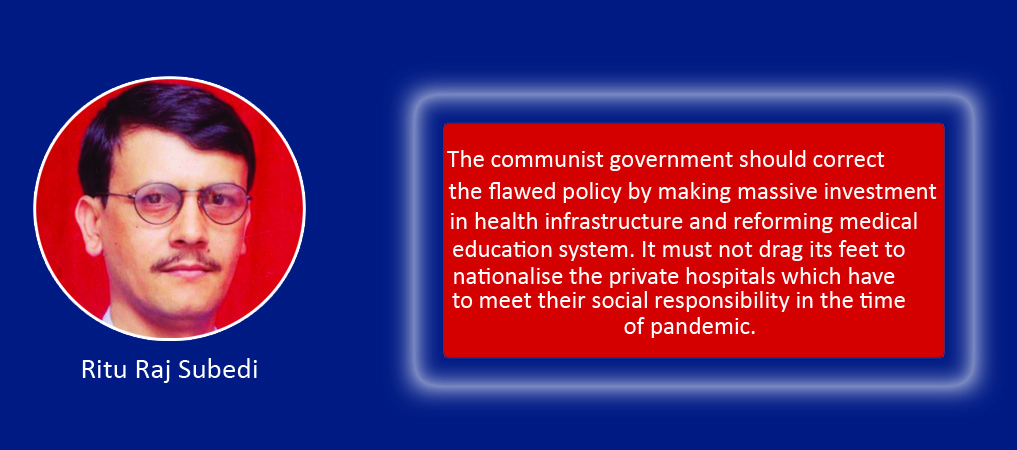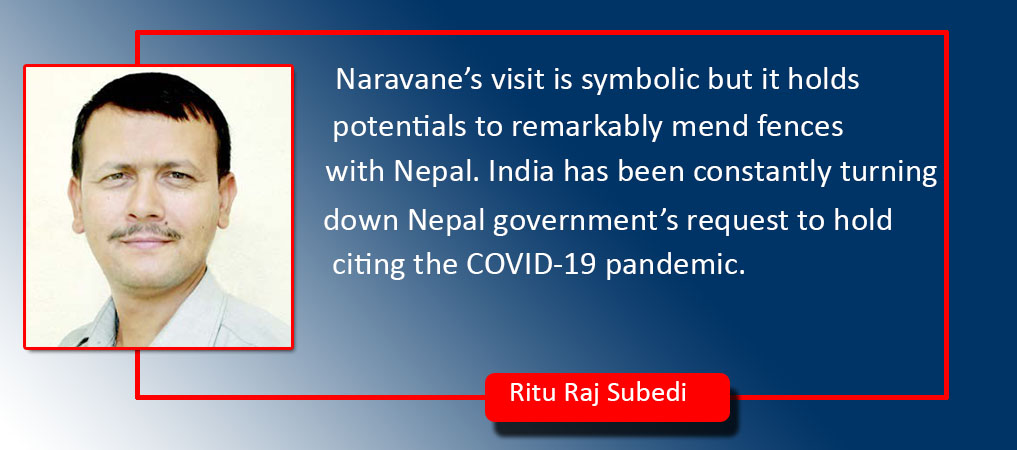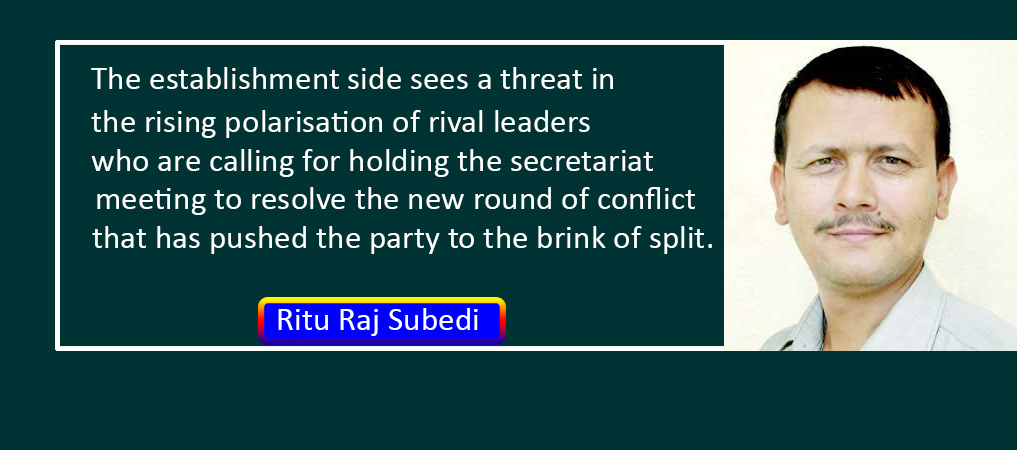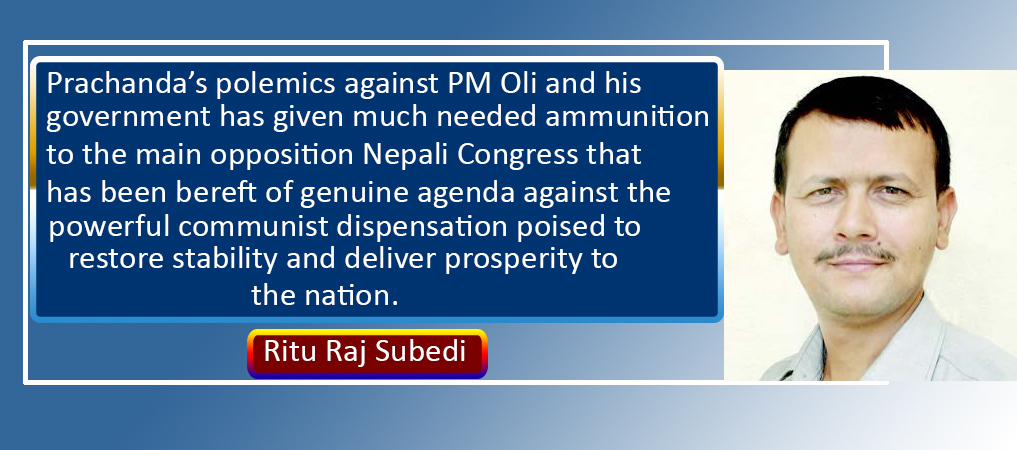Litmus Test Of Constitutional Bodies

Ritu Raj Subedi
For democracy to foster and flourish, it needs robust public institutions which shield it from all obstacles, threats and crises. These institutions must be autonomous, fair and efficient so as to deal with emerging challenges facing the system, constitution and the nation as a whole. The latest example can be cited from the USA where the court became a powerful bulwark against the authoritarian and reckless acts of former president Donald Trump. Justices, appointed by Trump himself, refused to buy his claim of massive voter fraud and irregularities during the November, 2020 presidential polls. At least eight judges including that of Supreme Court, who were appointed during the Trump presidency, refused to overturn the outcomes of historic elections that forced him out of the White House.
Broader interest
One may have reservation about the US foreign policy and its neoliberal preaching to the third world but the way the court and media tackled the ‘evilness’ of Trump is worth emulating. This elucidates the fact that a system does not deepen and function unless the institutions, envisioned by the constitution, are allowed to work independently and without bias. These institutions, which include an array of offices and organisations, are supposed to stand for the rights of sovereign citizens and broader interest of the nation. When the nation faces constitutional, political or economic crises, they must come forth to bring back the derailed politics back on track, retaining people’s faith in them.
Nepal is now thrust into an unwanted constitutional and political crisis with the dissolution of the House of Representatives (HoR). All eyes are on the Supreme Court and the Election Commission (EC). Both are vital constitutional bodies saddled with the task of settling the tricky constitutional and legal issues overwhelming the nation. The apex court is conducting the hearing on over a dozen writs filed against the House dissolution. The court has to now decide whether Prime Minister KP Sharma Oli’s move to disband the parliament was right. The would-be verdict will bear wider ramification for the fragile federal republican order.
PM Oli had dissolved the House and announced mid-term polls for April and May this year, citing that his government could not function smoothly owing to the obstacles created by his own party’s leaders. On the other hand, his opponents within and outside the party have termed the move as unconstitutional, undemocratic and betrayal of popular mandate. A host of civil society leaders see a heavy dose of regression in the House dissolution. It poses a serious threat to the new constitution and federal democratic republic, they insist.
Similarly, the EC has to settle the complicated dispute - which faction – one led by PM Oli and another by Pushpa Kamal Dahal Prachanda and Madhav Kumar Nepal – is the official Nepal Communist Party (NCP). In its initial decision, the EC has not recognised any changes to the party’s central committee structure made by both factions in the wake of its split. Nonetheless, the EC, which has a proven track record of holding the polls, is fraught with knotty legal rigmarole. Now it has to show its integrity and capacity by taking a fair decision as to which faction of NCP is authentic. Its decision will have huge implications for the rise and fall of the NCP splinters in the coming days. The faction which gets the poll symbol ‘Sun’ and is recognised as the authentic one will enjoy political fortune in future elections because ‘Sun’ is very popular among the NCP supporters and well-wishers. Luckily, the EC had sorted out similar dispute in the past.
Therefore, the SC and EC face their litmus test as the nation has plunged into the new political crisis after the first federal parliament saw its demise two years prior to expiry of its term. The public has reposed great trust in these constitutional bodies at a time when the nation is marred by a series of street protests. A section of people is talking about so-called ‘setting,’ meaning that there is collusion between the SC, EC and government to make the decision in favour of the latter. This appears to be an unfounded hypothesis, and is unlikely to happen given that the SC justices and EC officials could not go against the existing legal and constitutional provisions.
Judicial aptitude
The SC has the onus to interpret the constitution and remove confusion besetting it. In the past, it had delivered verdict on similar writs. It had proved its judicial aptitude and guts in the face of tyrannical regime. The people’s faith in democratic institutions is the key to institutionalise the federal republic and make the governance delivery effective and people-centric. If the people lose their trust in them, their credibility will not only go down the tube but this will also end up triggering systemic crisis and chaos.
(Deputy Executive Editor of The Rising Nepal, Subedi writes regularly on politics, foreign affairs and other contemporary issues)
Recent News

Do not make expressions casting dout on election: EC
14 Apr, 2022
CM Bhatta says may New Year 2079 BS inspire positive thinking
14 Apr, 2022
Three new cases, 44 recoveries in 24 hours
14 Apr, 2022
689 climbers of 84 teams so far acquire permits for climbing various peaks this spring season
14 Apr, 2022
How the rising cost of living crisis is impacting Nepal
14 Apr, 2022
US military confirms an interstellar meteor collided with Earth
14 Apr, 2022
Valneva Covid vaccine approved for use in UK
14 Apr, 2022
Chair Prachanda highlights need of unity among Maoist, Communist forces
14 Apr, 2022
Ranbir Kapoor and Alia Bhatt: Bollywood toasts star couple on wedding
14 Apr, 2022
President Bhandari confers decorations (Photo Feature)
14 Apr, 2022



